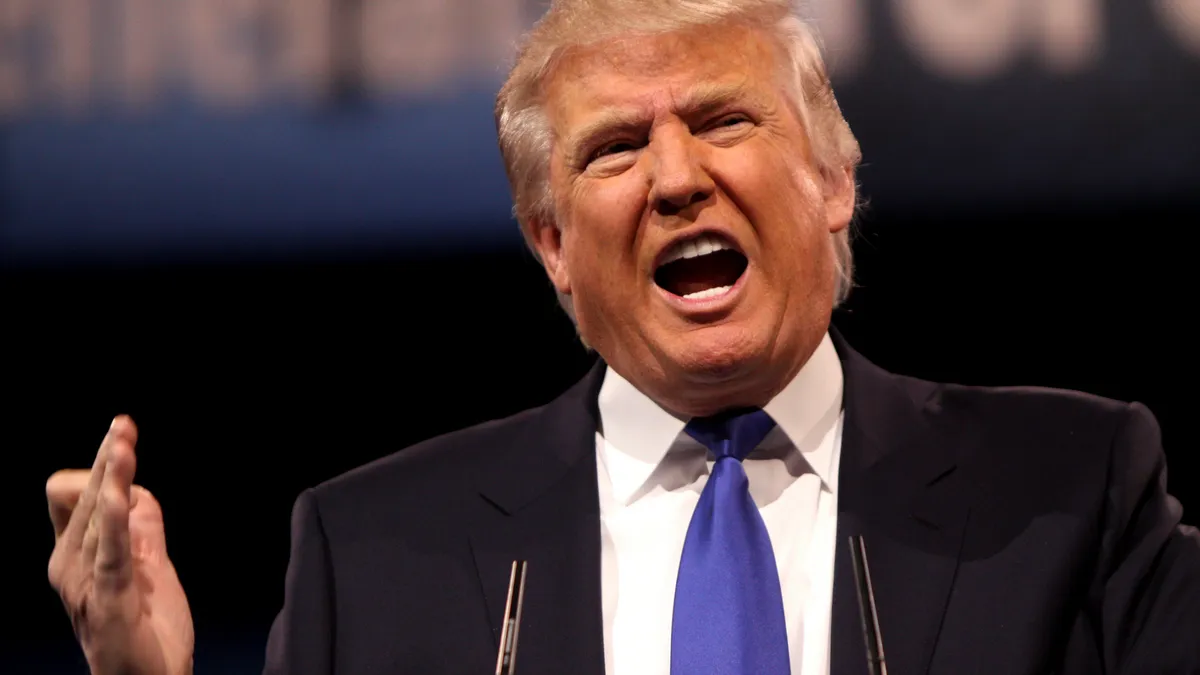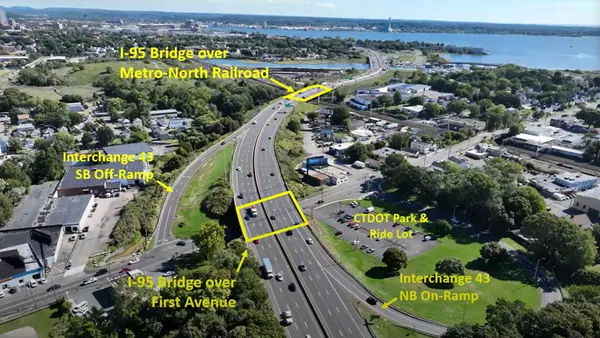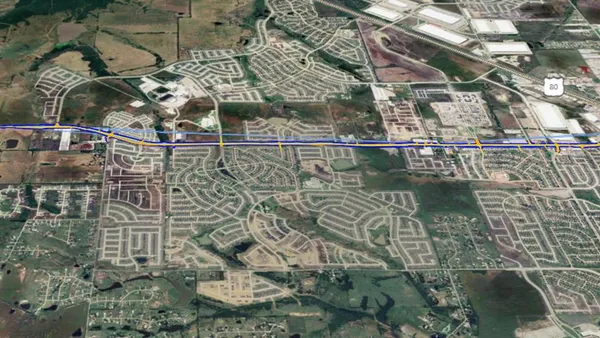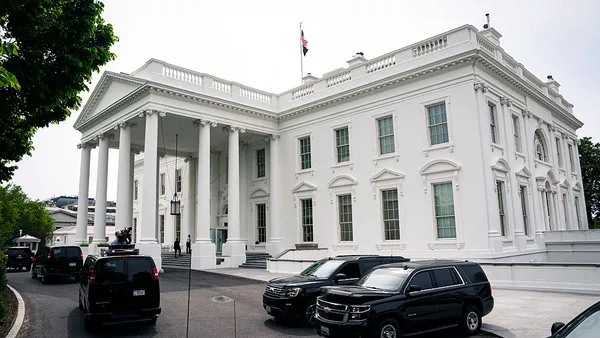Dive Brief:
-
Nonprofit advocacy group Food & Water Watch has launched legal action against President Donald Trump, alleging he ignored federal law when he put together an advisory committee to help steer policy for his $1 trillion infrastructure plan, according to The New York Times. The lawsuit also names the Transportation and Commerce departments as defendants.
-
The group claims that the way Trump organized and runs his infrastructure panel, which is led by wealthy real estate developers Richard LeFrak and Steven Roth, violates the Federal Advisory Committee Act's (FACA) public notice and other transparency rules. Food & Water Watch also argues LeFrak and Roth could benefit financially from panel decisions. The lawsuit says LeFrak and Roth are "long-time friends" of Trump.
-
The president issued an executive order on July 19 officially establishing the panel as the Presidential Advisory Council on Infrastructure, but, according to Food & Water Watch, the directive does not insist on FACA compliance.
Dive Insight:
Rebuilding the country's infrastructure was one of the linchpins of Trump's 2016 presidential campaign. Wilbur Ross, a key Trump campaign adviser and now the commerce secretary, was reportedly the chief architect of Trump's initial infrastructure proposal, which called for tax breaks of 82% for equity investors in airports, utilities, highways, port facilities and other public assets in need of an overhaul or replacement.
Since he took office, Trump has proposed using $200 billion of direct federal spending to achieve investment totaling $1 trillion over a 10-year period, primarily through private-sector involvement, as was recommended in Ross's plan.
Aside from that $200 billion, however, Trump has sought to slash programs that have previously helped state and local governments, as well as the Federal Aviation Administration, address their infrastructure needs. The president said his priorities were projects that had national impact and that states had become too reliant on the federal government to solve their infrastructure problems.
Reflecting that sentiment, his administration's 2018 budget proposal called for a 13% reduction in DOT funding and the ratcheting down or elimination of programs like the Transportation Investment Generating Economic Recovery (TIGER) grants.
Just this week, a Senate appropriations committee pushed back on the president's suggested cuts and voted not only to keep programs that Trump had put on the chopping block but to increase funding for some of them. Lawmakers' distributions included $550 million for TIGER grants; $19.5 billion in discretionary DOT spending; and $2.1 billion for the Capital Investment Grant Program.












